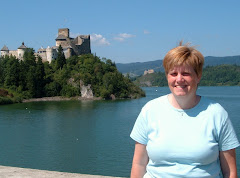In my reading of Antifragile: Things That Gain From Disorder,[1]by Nassim Nicholas Taleb, I found myself reflecting of Christ’s call to individuals to follow him. Those invitations were huge steps into the unknown. Steps out of stability and comfort into a lifestyle of risk, and process of transformative, or refined resilience. I cannot help but wonder how often, we as church leaders actually invite people into a life of all in risk taking with Jesus? Or has our “need to something”[2] resulted in “naïve intervention” weakening the spiritual substance of those we are called to serve?[3]
The disciples of Jesus were invited to a life of
growing in antifragility. It was an invitation into a life that is totally
reliant on one’s Creator (Luke 5:1-11). This was a life of adventure,
randomness, volatility and insecurity in the tangible world (Luke 9:57-59). Yet
somehow the risks and loss, produced a resilience of character that was sustained
through faith, and an inner peace beyond comprehension (Luke 10:4). Those who
embarked on this journey experience great joy and empowerment, as well as great
loss, and pain (Luke 10:17, Hebrews 11:35-38). What makes this an adventure and
not just some spiritual masochistic endeavor? Could the answer and strength be
found in the relationship with the master? In the daily interchange of thought,
daily life, and watching him navigate the random disruption with a surety and
peace the disciples had not encountered? Could this possibly the value Taleb found
in the “apprenticeship models” of the Swiss education system?[4]
Nassim Nicholas Taleb’s vast background in mathematics,
probability, and philosophy is reflected in his writing in Antifragile. This
comes through is numerous references to mythological gods and events. He has a
statical approach to the nature of randomness and volatility. The overarching
theme in the book is that all things, including people, benefit from “shock”
and “volatile environments, because as they’re stressed and put under pressure,
they get better.”[5]
Taleb uses a growth mindset[6] approach to explain how a fragile
being analyses the “indicators of success and failure”[7] to overcompensate, “by
building extra capacity to handle even bigger shocks better.”[8]
This comprehensive book systematically explains every
aspect of life in terms of how those people or aspects of society engage in facilitating
strategic randomness and volatility. His knowledge and expertise are evident in
his “important warnings and insights.”[9] Personally, I found this
book difficult to get through. I am not sure if the content is similar to other
books this semester or that my non-mathematical background struggling to connect
with his logic.
That being said, I do find myself being challenged to reevaluate
my leadership in terms of stealing the struggle from those I serve. There is
definitely great value in exploring more of a mentor model within the church
that is active and interactive while allowing for lessons through both failure
and success.
[1] Nassim Nicholas Taleb, Antifragile:
Things That Gain from Disorder, Random House Trade Paperback edition (New
York: Random House Trade Paperbacks, 2014).
[2] Ibid., 110.
[3] Ibid., 111.
[4] Ibid., 91.
[5] Niklas Goeke, “Antifragile by Nasssim
Taleb Summary and Review,” Four Minute Books, March 6, 2016.
[6] Carol Dweck, “The Growth Mindset,”
https://www.youtube.com/watch?v=-71zdXCMU6A.
[7] Goeke, “Antifragile by Nasssim Taleb
Summary and Review.”
[8] Ibid.
[9] Julian Baggini, “Antifragile: How to Live
in a World We Don’t Understand - Review,” The Guardian, December 15,
2012,
https://www.theguardian.com/books/2012/nov/21/antifragile-how-to-live-nassim-nicholas-taleb-review.



